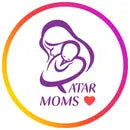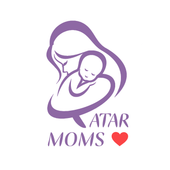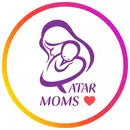Each stage of a baby’s growth requires careful attention to the types of food introduced, and incorporating solid foods alongside breast milk or formula is an essential step in their development. This introduction provides vital nutrients that support both the physical and emotional well-being of the child. This article aims to be a helpful guide for every mother seeking the fundamental principles of introducing solid foods to her baby. You will learn how to introduce solids in a healthy and safe way, as well as how to ensure a positive feeding experience for your child.
What is the Best Time to Start Solids?
The best age to start solids is when the babies reach 6 months of age. At this stage, a baby’s digestive system has developed enough to handle solid foods, and the child has gained the necessary physical and emotional skills to eat solids alongside breastfeeding or formula. Certain signs indicate that this is the best time to start solids, such as physical maturity, digestive development, and the need for additional nutrients beyond milk. It’s also advisable to avoid introducing solids during times of illness or stress to ensure a positive and healthy feeding experience.
How to start introducing solids successfully?
Introducing solids to your baby requires careful planning and gradual progress. Here are some steps to learn more about how to introduce solids:
1. Choose the best time to start solids:
The best time to start solids is when your baby is around six months old, showing interest in food, and able to sit up while supporting their head properly.
2. Start with light foods:
Begin with easy-to-digest foods. Introduce mashed and soft foods like mashed potatoes, boiled carrots, and iron-fortified cereals. Start with just one small spoonful.
3. Monitor Closely:
Introduce one type of food at a time and watch for any signs of allergies, such as rashes, vomiting, or diarrhea. Wait three days between introducing new foods, and consult your pediatrician if needed.
4. Encourage and Motivate:
Make mealtime fun and enjoyable. Be patient, create a comfortable atmosphere, and allow your baby to explore the food on their own to develop motor and sensory skills.
5. Provide Variety:
Once your baby gets used to soft and mashed foods, gradually introduce thicker textures and eventually small pieces, such as fruits and vegetables. Avoid hard foods like nuts, and steer clear of sugars and honey before they turn one year old.
How to Prepare Nutritious and Healthy Solids for Your Baby?
Preparing your baby's first foods involves simple steps to ensure high nutritional value and safety suited to their developmental needs. Here’s how to start solids:
1. Prepare suitable ingredients:
Ensure that the first foods you offer are appropriate for your baby’s age. Avoid foods that might irritate their digestive system. Wash vegetables and fruits thoroughly to remove bacteria and dirt, and peel off any tough skins. You can start with mashed grains like rice and oatmeal, provided there are no signs of allergies.
2. Cooking and Storage:
Choose cooking methods that preserve nutritional value. Steaming or boiling foods helps soften them, while baking can maintain flavor. Avoid frying foods with excessive oils. Store prepared foods in airtight containers in the refrigerator for up to 3 days.
3. Adjust consistency:
For a smooth and easily digestible texture, mash the prepared solids manually with a fork or use a blender. You can adjust the consistency with cooking water or milk to suit your baby’s needs.
4. Serve the food:
Create a pleasant mealtime environment to signal that it’s time to eat. Invest in attractive feeding tools to make the experience enjoyable. Ensure the texture is appropriate for your baby’s age and start with small amounts to let them get used to the taste while observing their reactions.
Introducing solids to your baby is a crucial step toward balanced nutrition and healthy growth. This article guides you through transitioning from breastfeeding to introducing solids with confidence and safety. Always remember that this is a learning phase for your baby, so be patient in establishing healthy, lasting habits. Consulting healthcare professionals when needed is also recommended.
To order and purchase baby feeding supplies, visit Qatar Moms store and shop for all Baby Feeding Essentials such as Baby Plates & Bowls, Baby Spoons, Baby High Chairs, as well as feeding accessories like Baby Bibs, Burping Cloths, and more infant and mom essentials at very affordable prices from the best brands
 FREE DELIVERY FOR ORDERS ABOVE 100 QAR
FREE DELIVERY FOR ORDERS ABOVE 100 QAR DELIVERY WITHIN 3 HOURS
DELIVERY WITHIN 3 HOURS APPLE PAY AND CARD PAYMENT AVAILABLE
APPLE PAY AND CARD PAYMENT AVAILABLE



